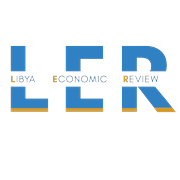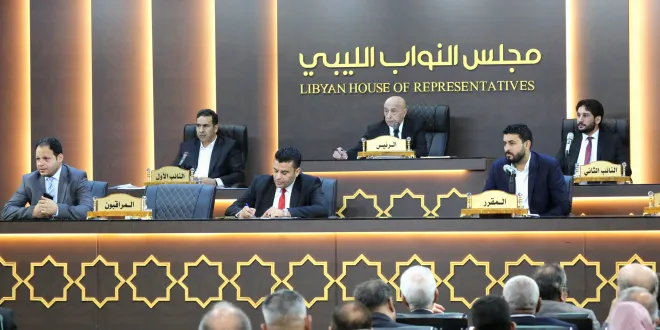Libya House of Representatives Pushes Institutional Unification to End Political Division
Seventy members of Libya’s eastern-based House of Representatives (HoR) announced on Sunday, Oct. 19th, a plan to overhaul the country’s top institutions in one coordinated step. In a statement carried by the HoR’s official media, spokesman Abdullah Blehiq said the deputies backed “the unification of the country’s sovereign and executive positions” and an end to the “ongoing institutional political division”. The lawmakers insisted that all key posts should be reshuffled together, warning that partial or separate reshuffles could lead to further fragmentation and division of state bodies. The appeal was signed by 70 MPs from across the eastern parliament, reflecting mounting frustration with Libya’s stalled political transition.
In practical terms, the deputies urged a single, comprehensive reappointment of the holders of every sovereign office. They noted that under Libya’s 2015 Political Agreement (supplemented by a 2015 Bouznika accord) the country’s historic regions are each supposed to share these posts, including the central bank governorship, the Supreme Court and Constitutional Court, the Attorney General, and oversight bodies such as the Audit Bureau and Anti‑Corruption Commission. Blehiq said the initiative aimed to ensure that appointments are made on “professional” and meritocratic grounds rather than along narrow political or regional lines. The statement also called on the HoR leadership to form a special committee to coordinate with the Tripoli-based High Council of State (HCS) in reviewing candidates for all such positions. It stressed that unifying the sovereign posts is closely tied to unifying Libya’s executive government, enabling national institutions to function properly.
Longstanding Political Divisions
Libya’s post‑Gaddafi era has been marked by deep institutional division. Since 2014 the country has effectively split between rival administrations: an east‑based legislature and military command (aligned with Field Marshal Khalifa Haftar) and a Tripoli-based authority (supported by the United Nations and western powers). The internationally recognized Government of National Unity, installed in 2021 under Prime Minister Abdul Hamid Dbeibah, is not accepted by the Tobruk-led HoR. A recent Reuters analysis observed that while Mr. Dbeibah’s unity government was backed by a UN process, the Benghazi-based House of Representatives no longer recognizes its legitimacy. Likewise, the High Council of State (an advisory body in Tripoli created under the 2015 accords) and the HoR have operated as competing legislative bodies. Both chambers trace their mandates to earlier elections – the HoR from a 2014 vote and the HCS from a 2012 vote – but they disagree on basic legal frameworks for governance.
The result has been a political stalemate. As the UN has noted, scheduled elections have repeatedly been delayed or derailed amid disagreements over voting rules and officeholders. Many Libyans have grown cynical. A UN mission report last year quoted ordinary citizens saying leaders seem “unwilling to bring forward elections that might remove them from their positions of power”. In that environment, filling posts such as central bank governor, electoral commissioners or judicial chiefs has itself become contentious, with rival claimants sometimes appointed by different authorities. Indeed, the HoR statement argued that letting one faction “monopolize” these sensitive offices only weakens trust among Libyans and obstructs the building of a just, partnership-based state.
Efforts Toward Unification
The parliament’s call comes amid parallel moves to resolve the impasse. On Monday, October 20th, a joint committee of the High Council of State reported an agreement with the HoR on a final mechanism for choosing seven key sovereign offices. That deal covered the posts of Supreme Court chief, central bank governor, attorney-general, heads of the Election Commission and Audit Bureau, among others. Abdullah Jawan, chair of the HCS sovereign-positions committee, said the pact followed intensive meetings and was a “significant step” toward political stability and unified institutions. Likewise, UN Special Envoy Hanna Tetteh has pressed both chambers to move together. In mid-October, Tetteh told the Security Council that representatives of the two bodies had agreed to reconstitute the High National Elections Commission (HNEC) and to “consider” all other sovereign positions at the same time. However, Tetteh added, the parties have so far failed to fully bridge differences on how to proceed, highlighting the fragility of any consensus.
The demand for a comprehensive reshuffle is consistent with statements by other HoR leaders. Earlier this month, Second Deputy Speaker Misbah Douma issued a warning against piecemeal deals. “Changing these positions should only be done within a single, integrated package,” he said in a formal statement, citing the Political Agreement. He urged colleagues to reject any “fragmentation” of the process, saying that piecemeal appointments “lead to further division” and cripple state institutions. Douma insisted that Libya needs a radical change in the structure of its higher institutions to ensure the stability of the state, explicitly linking that overhaul to holding simultaneous presidential and parliamentary elections. In other words, HoR hardliners are backing the idea that only a wholesale reset – rather than incremental tweaks – can break the political logjam.
Implications for Libya’s Governance
It remains unclear whether Tripoli’s authorities or international mediators will embrace the HoR’s proposal. The MPs’ statement did not indicate any prior agreement with the High Council of State or the Presidency Council (the Tripoli executive). Nor did it mention how the many appointed officials now in office would be removed or replaced. If accepted, a simultaneous rotation could pave the way toward elections: Libya’s UN‑endorsed roadmap explicitly ties credible polls to unifying institutions and rebalancing posts among the east, west and south. As the U.N. has emphasized, concluding these initial steps promptly is seen as essential to prepare for any vote. On the other hand, failure to secure broader buy‑in could simply solidify the status quo. Libya’s top international backers – from the United Nations to foreign governments – have urged progress on these reforms, warning that continued deadlock deepens divisions. A Reuters analysis last year quoted the UN as noting that Libyans are keenly aware of “the damaging effects” that the current split in authority is having on the country’s unity and stabiliy.
For now, the HoR initiative is a sign of rising impatience among eastern lawmakers. By airing their demands, they have put pressure on all sides to address the core question of who controls Libya’s key institutions. Ultimately, resolving that question is a prerequisite for any credible government or elections in the future. If Tripoli’s leaders respond by joining a joint selection process, Libya could make significant progress toward unifying its institutions. If not, the tug of war over sovereign posts may continue, with each step likely to reignite mistrust. The next days will test whether this push will translate into concrete action or simply underscore the depth of Libya’s political paralysis.




